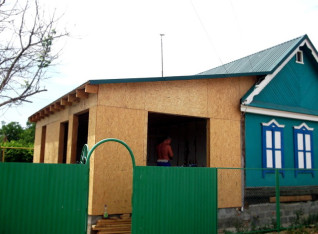Declaration of place of residence: a new approach in the world of transformable real estate
In today's society, where mobility is the norm and real estate is constantly changing, the traditional residence registration system often fails to keep up with realities. That is why the concept of declaring a place of residence is becoming increasingly relevant. This is a new, more flexible approach that takes into account the dynamism of our lives and the abundance of forms of real estate ownership.
Unlike classical registration, which requires strict compliance between documents and the actual condition of the home, declaration is more adaptive. It allows citizens to independently declare their place of residence, even if the property has certain legal features. This is especially important in an era when apartment redevelopment has become almost the norm, and private houses often require legalization.
Let's consider a typical situation: you purchased an apartment that has undergone significant redevelopment. Perhaps the previous owner combined several rooms or turned the balcony into an office. Under the traditional system, without official registration of redevelopment, registering in such an apartment would be problematic. After all, an audit would reveal a discrepancy between the declared planning and reality.
However, as part of the declaration of residence system, you can declare your residence in this apartment, while simultaneously initiating the process of legalizing the redevelopment. You honestly indicate the actual condition of the property and undertake to bring the documentation into compliance. Thus, you do not remain “invisible” to the state, but you are not limited by bureaucratic barriers either.
A similar situation can arise with private houses, especially in the suburbs or rural areas. Often such objects exist for years without proper documentation. Moreover, owners often expand them by adding additions or extensions without formal registration. In the past, this created a vicious circle: without legalizing the building, registration is impossible, but without registration it is difficult to prove the fact of residence.
Declaring your place of residence breaks this circle. You can declare your residence in such a house, clearly indicating its actual condition. This applies to both the main structure and additional structures. For example, if you actually live in a loft that is not yet legally registered as an outbuilding, you can still declare this on your declaration.
This openness has a double benefit. On the one hand, you receive the basic rights and responsibilities of a resident, from the ability to vote in local elections to paying for utilities. On the other hand, your declaration becomes the first step in full legalization. It signals the authorities about the need to legitimize the building, design a superstructure legalization of an extension .
Declaration becomes especially relevant for those who acquire real estate in non-standard ways. A classic example is the acquisition of property by prescription. This is a situation where you have owned the property openly and in good faith for years, but are not yet legally its owner. Under the old system, this created a paradox: you actually live in the house, but you cannot register there.
Within the framework of the declaration, this phenomenon is resolved. You declare your residence while simultaneously initiating the process of recognition of ownership. Your declaration becomes important evidence in court, proving the duration and openness of your ownership. After the court decision, you simply update the declaration as the rightful owner.
In rural areas, issues often arise with land shares. Imagine that you own part of the land on which a residential building is located. Previously, registering a share as a place of residence was almost impossible, because the share itself is, first of all, a plot of land. Declaration allows you to bypass this formality. You indicate that you actually live in a house on this land, while simultaneously working towards official recognition of a residential building.
An important aspect of declaration is the increased responsibility of citizens. By submitting a declaration, you do not just indicate the address, but provide comprehensive information about the property. This includes a detailed description, photographs, perhaps even diagrams or plans. In the event of an audit, you must justify each item in your declaration.
For example, if you declare living in an apartment with illegal redevelopment, be prepared to explain all the changes. The same applies to illegal additions or additions to private houses. You need to not only acknowledge their presence, but also determine design plans. Such transparency is part of the social contract under the new system.
Critics may argue that declaring residence is a “carte blanche” for building code violators. Like, everyone will be able to do whatever they want with real estate, and then simply “declare” the changes. But that's not true. Declaration does not replace legalization processes or registration of an extension . It only allows people not to fall out of the legal field during these processes.
Moreover, mass declaration of real estate conditions can become a powerful tool for urban planning. The authorities receive a clear picture of what changes residents most often make - from typical apartment redevelopments to typical extensions in the private sector. This information allows you to adapt building regulations and simplify the procedures for legalizing the most common changes.
To sum up, declaring your place of residence is not just a new bureaucratic procedure. This is a conceptual shift that reflects the realities of the modern world. At a time when real estate is constantly transforming - from apartment remodels to house extensions - old, rigid systems often don't work. They leave many people in a gray area where their actual lives do not match the legal documents.
Declaration offers a more flexible, human-centric approach. It recognizes that life often gets ahead of bureaucracy, and gives citizens the opportunity to officially declare their place of residence, even if the property is not yet fully compliant. This does not negate the need for legalization or registration - be it a redevelopment, legalization of a building or an extension. But this allows people to remain “visible” to the state throughout these processes, enjoying basic rights and fulfilling responsibilities at their actual place of residence.




































